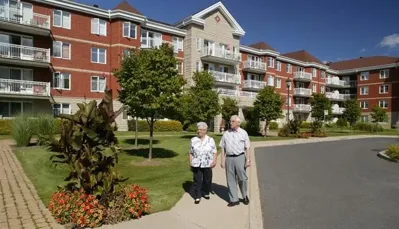Navigating the house rental market in Japan can be both exciting and challenging, especially for newcomers. With a blend of traditional values and modern conveniences, Japan offers a diverse range of housing options. Understanding this market is crucial for anyone looking to find the right home, particularly in rapidly developing areas where commutation times are minimized, and convenience is prioritized.
![]()
The Japanese Rental Landscape
Japan's housing market is characterized by a wide variety of options, from compact apartments in urban centers to spacious houses in suburban areas. In cities like Tokyo and Osaka, demand for housing is high due to the influx of people seeking employment, leading to rising rental prices. Typically, rental costs vary significantly based on location, size, and amenities. For example, renting an apartment in a prime location close to public transportation may be more expensive than a similar unit in a less developed area.
![]()
Factors Influencing Rental Prices
Several factors influence rental prices in Japan, including:
- Location: Areas close to train stations and city centers tend to have higher rental costs. The convenience of commuting plays a significant role, as many professionals seek to minimize their travel time to work.
- Size and Type of Property: The size of the apartment or house directly affects its price. Larger properties or those with additional features, such as a balcony or storage space, typically command higher rents.
- Market Trends: The rental market is influenced by broader economic trends, including fluctuations in the job market and demographic shifts. Emerging neighborhoods may offer lower rents as they develop, making them appealing to renters looking for value.
Finding the Right Rental Property
To find a suitable rental property in Japan, consider the following strategies:
- Online Platforms: Websites such as Suumo, Homes.co.jp, and GaijinPot offer extensive listings of available properties. These platforms allow users to filter searches based on location, price, and property type, making it easier to find the right fit.
- Real Estate Agencies: Engaging a local real estate agent can be beneficial, especially for those unfamiliar with the market. Agents can provide valuable insights into the rental landscape, assist with paperwork, and help negotiate terms.
- Networking: Tapping into local networks, such as community groups or social media platforms, can lead to potential rental opportunities that may not be listed online. Word-of-mouth recommendations often yield favorable results.
![]()
Key Considerations When Renting
When renting a property in Japan, keep the following considerations in mind:
- Initial Costs: Rental agreements often require several upfront costs, including a deposit, key money (a non-refundable fee to the landlord), and agency fees. Be prepared for these financial obligations when budgeting for your rental.
- Lease Terms: Understand the terms of the lease, including the duration, rules regarding pets, and conditions for termination. Japan's rental contracts can vary, so it is essential to clarify these details beforehand.
- Furnishing and Utilities: Determine whether the property comes furnished or unfurnished and what utilities are included in the rent. Some apartments may require you to set up your utilities, which can be an additional hassle.
![]()
Conclusion
Understanding the rental market in Japan is key to finding a home that meets your needs and budget. By considering location, utilizing online resources, and engaging with local real estate agents, you can navigate the complexities of renting in Japan more effectively. With the right preparation and knowledge, securing a comfortable and convenient living space in this vibrant country is within reach. Whether you seek a bustling city apartment or a tranquil suburban house, the Japanese rental market has something to offer for everyone.


